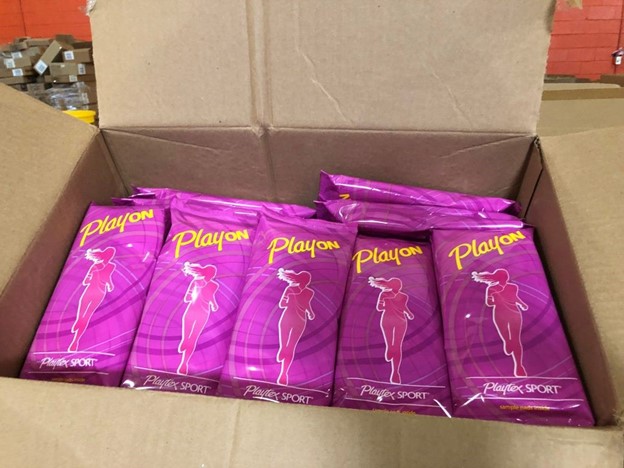Period poverty. It’s not a topic normally raised during economic equity discussions, but that doesn’t make it any less relevant. For half the world’s population, menstruation is a biological reality that brings added expenses and, all too often, unwarranted stigma. For many low-income families, the choice comes down to purchasing menstrual hygiene products versus a meal.
For school-age children, the consequences can be especially detrimental. A study by Proctor & Gamble reveals that 1 in 5 young people who have periods have missed school due to the lack of access to hygiene products — that is more than 3.5 million students. Missing school can lead to lower performance and decreased confidence, both of which impact a student’s chances for future success.
“Imagine if students were responsible for bringing their own toilet paper to school. That would be ridiculous, but so is not providing tampons and pads for those who have periods.”
Maria Molland, CEO of period-proof underwear brand THINX
“Imagine if students were responsible for bringing their own toilet paper to school. That would be ridiculous, but so is not providing tampons and pads for those who have periods,” said Maria Molland, CEO of period-proof underwear brand THINX, in Forbes’ FemBeat: Period Poverty is a Thing, Even in the U.S. According to a survey performed by PERIOD. and Thinx, found that in 2023 almost a quarter (23%) of teens still struggle to afford period products, unchanged from 2021. However, students report a 7% increase in accessing period products at school and a decrease in period stigma.
Locally, the needle has moved forward for students in Charlotte-Mecklenburg Schools (CMS) since 2019. In the 2022-2023 school year, Flo Charlotte, a local non-profit dedicated to providing hygiene supplies to those in need, donated to 48 elementary, middle, and high schools across the district.
As of October 2023, in this country, 21 states, including North Carolina, tax tampons and other period products as nonessential “luxury” items even though they are hygienic necessities. Opponents of this “tampon tax” point out its inherent gender injustice: those who menstruate are taxed for something that is totally out of their control. “This is not a luxury,” said Anne Sebert Kuhlmann in a 2019 Reuters Health article. “It’s a need. It affects a woman’s [sic] sense of self, her sense of dignity, and her ability to participate in life.”
The issue has steadily gained attention. Case in point: the Menstrual Equity for All Act (H.R. 1882) was introduced in Congress in 2019. The first of its kind, the bill made menstrual hygiene products free in prison, allowed states to use federal funds to provide them in school, and required that Medicaid cover them. In most cases, products can now be purchased with Flexible Spending Accounts or Medical Savings Accounts as well.

The world’s first #NationalPeriodDay began on October 19, 2019. Since its inception, it has been transformed and rebranded as Period Action Day. Period Action Day, scheduled for October 12, 2024, is an opportunity for organizations to donate period products to communities in need, just as Flo Charlotte has done in numerous Charlotte Mecklenburg Schools. Communities are also encouraged to spread awareness to help end period stigma by spotlighting the issue of period poverty and making period products more accessible for all. Organizers envision the day as a springboard for the Menstrual Movement Coalition, a group dedicated to gender and menstrual equity.
For an in-depth look at this often overlooked topic, check out: https://period-action.org/periodpoverty
- CBS News: What is Period Poverty?
- Period Action: Period Poverty
- Alliance for Period Supplies: Having a period is not a luxury
- Ballard Brief: Period Poverty in the United States
